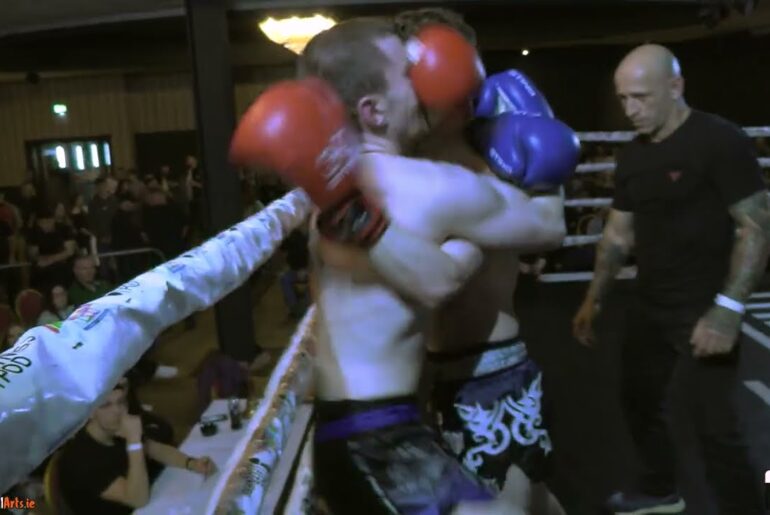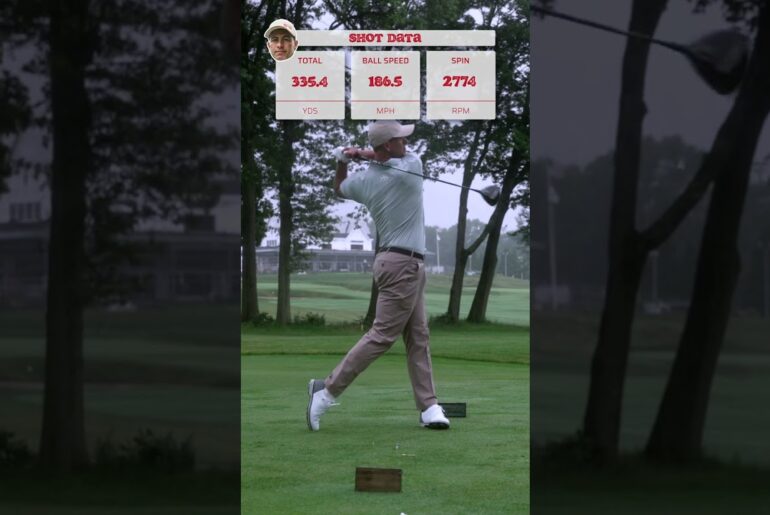#golfer #golfswing #golf #pga #golflife #golfing # #LIVGolf #PGATour #GolfDrama #jordanspeith
Jordan Spieth was once the brightest star in golf, a young champion who seemed destined to rule the sport for decades. But if you listen to some of golf’s biggest legends and even his fellow pros, you might start to wonder what happened to that promise. They say he was useless at times, that his game fell apart, and that he got special treatment while others suffered. Let’s dig into why these harsh words got thrown his way.
daytoday. I mean, the sport kind of if you’re going to go out and do it, it’s going to force you to have to work a certain way and work hard in order to get better cuz it’s unforgiving. Just that in itself is enough to to drive you. Jordan Spe was once the brightest star in golf, a young champion who seemed destined to rule the sport for decades. But if you listen to some of golf’s biggest legends and even his fellow pros, you might start to wonder what happened to that promise. They say he was useless at times. that his game fell apart and that he got special treatment while others suffered. Let’s dig into why these harsh words got thrown his way. Spee’s story is puzzling because he had everything going for him early on. Three major championships by age 23, he masters green jacket and that famous near miss at the Grand Slam in 2015. But then something broke. His swing started betraying him. His putting once his greatest weapon turned average or worse and the winds dried up. Critics started speaking out loud from legends questioning his coaching to fellow players calling out favoritism. This is about those criticisms and whether they actually hold water. Gary Player, one of golf’s all-time greats with nine major titles, didn’t hold back when talking about Spith. Player said Spy was taught the wrong thing and called his decline a tragedy. According to Player, Spy had the talent to be the best player in the world. But bad coaching held him back. That’s a harsh accusation, especially when you consider that Spith has worked with the same coach, Cameron McCormick, since he was just 12 years old back in 2005. Spy has always praised McCormick, calling him his complete coach for swing mechanics, pudding, short game, and even mental preparation. After winning the 2015 Masters, Beith said he had complete trust in everything McCormack told him. So, if the coaching relationship has been that stable and successful, how can players criticism be right? The answer is more complicated than just blaming the coach. SPath’s swing is unusual, not built for power, but for rhythm and timing. His compact back swing, unique wrist hinge, and the way he releases the club all depend on perfect sequencing. When everything clicks, it works brilliantly. But when even tiny things go wrong, the whole system falls apart. Advanced analysis using artificial intelligence and computer vision has shown that Spath’s swing has subtle inconsistencies. The naked eye can’t catch small timing errors during the transition phase or flight overextensions at impact yet magnified into big problems with the ball flight and accuracy. So player is right that Spath’s game is fragile and inconsistent, but wrong about the cause. It’s not poor coaching. It’s that Spath’s swing is inherently risky and hard to maintain under pressure across hundreds of rounds every year. The numbers back this up. SPath’s strokes gained statistics for 2025 show moderate performance at best. His off the tea number is 0.313, which ranks him 60th on the PGA Tour. That’s positive, but nowhere near elite. Even worse is his pudding. Speed used to dominate with the putter, but now his strokes gained pudding sits at 0.152, ranking him 66th. In some recent seasons, he’s been as low as 179th in putting. His putting used to mask his swing issues, but now that advantage is gone. The result is a holistic struggle affecting every part of his game. His world ranking has dropped to 72nd. His last win was back in 2022 at the RBC Heritage. The volatility player observed is real, even if his explanation for it isn’t quite accurate. What makes this decline particularly striking is the contrast with Spath’s historic peak. During his dominant stretch from 2014 to 2017, Beith wasn’t just winning tournaments. He was controlling them from start to finish. His ability to hold crucial putts under pressure became legendary. He could scramble from anywhere and still post low scores. His short game creativity made him almost impossible to beat when he was in contention. Those skills haven’t completely disappeared, but they show up far less consistently now. The mental strain of dealing with mechanical uncertainty seems to have eroded the confidence that once made him so dangerous. When a player starts questioning their swing mechanics on the course, it becomes nearly impossible to play freely and aggressively. Spe often looks tentative where he once looked fearless. That psychological shift is just as damaging as any technical flaw. If you want to drop us a comment below, let us know if you think Spath can ever get back to his peak form with that swing. But the technical criticism isn’t the only thing Spath has to deal with. There’s also anger about economics and fairness. The PGA Tour recently restructured itself to create signature events, which are limited field tournaments with massive prize money designed to keep star players happy and sponsors interested. These events are supposed to be for the best players with strict qualification criteria. But they also allow a small number of sponsor exemptions, and that’s where the controversy starts. Players like Robert Gerrigas and James Han, who are struggling to keep their tour cards and ranked 154th and 178th on the career money list, have publicly blasted the system. Garagus specifically called out Spith, asking if the addition of another signature event meant one more sponsor invite for Jordan Spath. He even challenged Spath directly, saying he’d play him for any amount of money, and if Griggas won, he’d take Spath’s five invites to those events. James Han called the whole tour structure a joke and criticized the top heavy business model that favors stars over regular members. Their anger is understandable. These guys have to grind through full field events and fight for every point and dollar to keep their status. Meanwhile, Spaith, despite his recent struggles, gets handed five sponsor exemptions into signature events. Those five starts aren’t just nice perks, they’re huge advantages. In the 2025 season, SPE earned 254 FedEx Cup points from those exempted starts. To qualify for the FedEx Cup playoffs, a player needs around 620 points. So, those gifted starts accounted for 29% of Spath’s total regular season points of 865. That’s a massive safety net. He didn’t have to compete in open events to earn those points like everyone else. His marketability and star power got him access that other players with better recent form couldn’t get. Garagus and Han see this as fundamentally unfair. They’re losing opportunities because sponsors want recognizable names like Spath in the field. Even if SPH isn’t playing great golf, the PGA Tour is prioritizing marketability over meritocracy. And SPath is the face of that system. The criticism here is valid. SPE is directly benefiting from a structure that keeps stars protected while pushing out lesserk known pros who might actually deserve those spots based on performance. The deeper issue is what this sponsor exemption system reveals about professional golf’s economic reality. The tour needs stars to attract television viewers, corporate sponsors, and fan interest. Without marquee names in the field, tournament purses shrink and the entire ecosystem suffers. But this creates a two-tiered system where established stars get safety nets that younger or less famous players never receive. A player ranked 100th in the world might be playing better golf than speed at any given moment, but they won’t get those sponsor invites because they don’t move the needle commercially. This isn’t unique to golf. Most professional sports protect their stars through various mechanisms, but golf has always prided itself on being a pure meritocracy where anyone can qualify through performance alone. The signature event structure undermines that ideal and players like Gerrigus and Han voicing the frustration of everyone outside the elite circle who feels the system is rigged against them. What makes the situation even more frustrating for these non- elite players is the timing. The signature events were introduced partly as a response to the LIIV golf threat with the tour trying to keep its biggest stars happy by offering them guaranteed money and limited field events. But in protecting the top tier, the tour created a harder path for everyone else. Players who used to have realistic chances of working their way into big events through good play now find those doors closed. The opportunities are fewer and the competition for them is fiercer. Meanwhile, a player like Spith gets automatic entry based on past accomplishments and current marketability even when his recent performance doesn’t justify it. For someone like Grigus, who has been grinding on tour for years, watching Spy collect sponsor exemptions while playing mediocre golf feels like a slap in the face. It’s a visible reminder that in modern professional golf, who you are matters more than how you’re currently playing. The financial gap created by this system is staggering. Players who receive sponsor exemptions into signature events are competing for purses that can reach $20 million with winners taking home multiple millions. Compare that to regular tour events where purses might be 8 or 9 million and the winner gets just over a million. For players like Gerrigas and Han who are fighting to stay on tour, missing out on even one signature event could mean the difference between keeping their card and losing it. Meanwhile, Spath’s five exemptions essentially guarantee him enough points and money to stay comfortable regardless of his actual performance. The system creates a scenario where struggling stars are protected while grinding journeymen face an increasingly impossible climb. It’s not just about fairness in the abstract. It’s about actual careers and livelihoods being affected by a governance structure that prioritizes entertainment value over competitive merit. Then there’s the interpersonal drama. Patrick Reed, Spath’s former Ryder Cup partner, publicly aired out their team room tension after the 2018 Ryder Cup. Before that event, Spath and Reed had an incredible record together going four wins, one loss, and two ties in the 2014 and 2016 RDER Cups. They were called Captain America and seemed unstoppable. But but in 2018, Captain Jim Furick split them up. Reed was paired with Tiger Woods and Spath with Justin Thomas. Reed later told the New York Times that the decision wasn’t his or the captains. Claimed it was Jordan not wanting to play with him. Reed said he didn’t care if he liked his partner as long as it worked and helped the team succeed. He even described looking at Spath during a press conference when Spath said the players were totally involved in every decision and Reed thought about lighting the room up like Phil Mickelson did in 2014. He criticized his captain. That reference to Mickelson shows how serious and bitter Reed felt about the situation. Reed and Spith’s partnership always had competitive tension. Reed admitted they played against each other even when wearing the same colors. Spy’s decision to play with his close friend Justin Thomas instead might have been about wanting better chemistry and avoiding that toxic rivalry, but it also looks like a calculated move that hurt Reed’s feelings and imaged a proven successful partnership. The Spath and Thomas pairing went 3 and one in 2018, so it worked out on paper. But Reed’s public complaint reveals a side of Spath that doesn’t match his gracious public image. It shows he’s willing to make tough. Even ruthless decisions for strategic reasons, even if it means sacrificing a teammate’s trust. In highstakes team environments like the Ryder Cup, creating public resentment from a respected competitor is a reputational problem. It could affect future team selections and shows that Spath’s calculated approach sometimes clashes with the loyalty and camaraderie people expect from him. The Reed situation also highlights how team dynamics in golf are fundamentally different from individual competition. In stroke play events, Spith only has to worry about his own game and his own score. But in matchplay team formats like the Ryder Cup, chemistry and trust between partners become crucial. Reed’s competitive fire and edge, while potentially uncomfortable for Spath personally, had proven successful in previous cups. By choosing comfort and friendship over proven results, Spith made a decision that prioritized his own preferences over what might have been best for the team. Whether that decision was right or wrong is debatable, but what’s clear is that it created lasting damage to his relationship with Reed and exposed a willingness to put personal considerations above team loyalty when it suited him. When you step back and look at Spath’s career compared to his peers, the inconsistency becomes even clearer. His career top five finish percentage is 19.8%. which puts him at the bottom of a group that includes Roy Mroy, Scotty Sheffller, John Rom, Justin Thomas, Brooks Kepka, and Xander Schoffley. Is at 32.5%, Rom, and Mroy at 30.5%. Speed’s career win rate is 4.8% barely ahead of Schoffley’s 4.6% and far behind Mroyy’s 10.4% and Sheffller’s 8.1%. Speed has played the most career starts at 273, but his conversion rate into top finishes is low. Early in his career, his win rate was 9.1% over his first hot shooting done 21 starts, but he couldn’t sustain that pace. His overall career profile has normalized well below the sustained dominance everyone expected during his major winning peak. He plays a lot of events, but doesn’t finish near the top as often as other elite players. That’s the definition of inconsistency. So, are the criticisms of speed fair in different ways? Yes. Gary Player’s observation that speed struggles with volatility and inconsistency is completely valid. The numbers prove it. But blaming poor coaching is wrong. Spiith has had a stable, trusted relationship with Cameron McCormack for nearly two decades. The problem is that Spy’s swing is inherently fragile and timing dependent. When minor biomechanical issues creep in, they get magnified into major performance problems. That’s not a coaching failure. That’s the risk of using a unique complex swing mechanism. The economic criticism from Gerrigus and Han is the most objectively valid. Spith absolutely benefits from preferential treatment. His five sponsor exemptions into signature events gave him a 29% safety net for his FedEx Cup status. His marketability is prioritized over strict competitive merit and that directly undermines opportunities for non- elite members. The PGA Tour’s governance chose star retention over fairness and SPE is the face of that favoritism. The interpersonal criticism from Patrick Reed reveals a strategic ruthlessness beneath Spath’s friendly public persona. His decision to break up a proven writer Cup partnership for reasons of chemistry might have been smart strategically, but it damaged relationships and created public resentment. It shows that Spath is willing to make cold, calculated decisions, even if they hurt teammates. Looking forward, Spith’s path back to sustained excellence requires bridging the gap between his mental approach and the need for mechanical stability. His swing mechanics demand constant, diligent maintenance of tiny kinematic adjustments. He needs to move his strokes gained metrics reliably back into the top 30 across all categories, especially putting and off the tea. From an economic and governance perspective, Spath’s role as a marketable American star remains crucial to the PGA Tour’s viability and sponsor appeal. That means he’ll continue benefiting from preferential pathways like sponsor exemptions, making him an ongoing political target for players advocating for stricter competitive fairness. His future will likely be defined by cyclical, highly volatile results. His ability to stay elite will depend as much on sustained marketability as on week- toeek statistical performance. Jordan Speed’s story is a reminder that talent alone isn’t enough. His unique swing is both his blessing and his curse. The PGA Tour’s economic structure protects him during slumps, but it also makes him a target for criticism from players who feel shut out, and his calculated decisions in team environments reveal a complexity that contradicts his gracious public image. The legends and his peers aren’t wrong to criticize him. The data and the context support their complaints. But Spith’s legacy as a three-time major champion and his massive popularity mean he’ll always have a platform and a safety net. Whether he can reclaim his elite form or continue riding the wave of marketability remains to be seen. His mental resilience and historic achievements still command respect even if the criticisms sting. So what do you think? Are the legends right about speed or does he still have greatness left in him? Drop your thoughts in the comments. Heat. Heat.








6 Comments
Special treatment? It has always been thus. The PGA suspended VJ Singh for taking “ANTLER DPRAY” but turned a blind eye to Eldrick’s years long use of PEDs. Venturi was cheated out of the Master’s when the PGA surrendered to a favourable ruling that allowed Palmer to win. It’s disgusting and it will never change.
CANT YOU A HOLES FIND ANYTHING BUT B.S. TO PRINT.
Jordan signs all autographs, great with the fans and media. Who wants to see a crumbly, complaining no names. Jordan is great person and giving. I rather see him shoot 75 than these complainers shoot 65
Speith is different than other golfers, he's one win away from the Grand Slam, has plenty of wins on the PGA tour and has always carried himself with class on the course. Yes, his game has slipped but EVERY GOLFER!!!!!has had their game go on them. So, for anyone to say Speith is a piece of shit is ridiculous. And when Speith wins the PGA and the Grand Slam everyone will be singing his praises. So pipe down.
His putting was out of the world … I never thought that he had a very good swing unlike Adam Scott …
Spoiled kid, can't say much more.